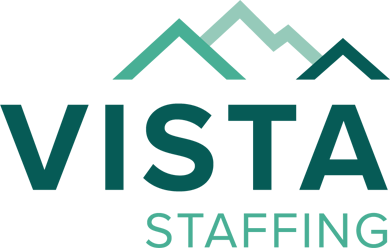Post Resident Job Resources
We have compiled tips from experienced credentials verification experts and licensers, quality assurance/risk management professionals, and physicians to get you started with your career. Here are some recommendations we feel may help you.
- Build Your CV
-
Build a Powerful CV
A few simple tips will make a difference in the impact your Curriculum Vitae (CV) can have on a potential employer, staffing agency, or client.
Be thorough
- As a general rule, list your most current activity first. Include month/day/year for all dates.
- Any gap in time must be explained. If you backpacked through Europe for three months, spell it out in your CV. Otherwise, it could generate a red flag in the mind of the reviewer.
- Keep your CV short and compact, not to exceed two pages if possible.
- Include your full name and make sure you can be reached at the address, telephone number, and email address that you include. Check this each time you send your CV out.
- If you are an International Medical Graduate (IMG) or a Foreign Medical Graduate (FMG), make sure you mention your visa status.
- Finally, there are a few items best left out of your CV. These include social security numbers, licensure numbers, and examination scores. You will have the opportunity to supply them at a later date in a more secure way. Do not include race or religion. Marital status and number of children are optional.
Use title headings and a consistent flow
Break the information into sections with clear title headings. For example, if you have published medical papers, title them as “publications.” If you have medical research that has been submitted or is in progress, use the title “research experience.” People who review lots of C.V.s—including organizations that are regular users of locum tenens physicians—are used to seeing the information in the following order. We recommend that you follow it.
Click here to download a pre-formatted Microsoft® Word template that will help you get started.
- Personal information (Full name, address, phone numbers, email address)
- Professional work
- Practice specifics
- Hospital affiliations
- Military service
- Academic history
- Graduate training
-
- Fellowship
- Residency
- Internship
- Medical school
- Undergraduate training
-
- Licensure
- Certifications
- Recertification dates
- Professional associations
- Honors
- Volunteer work, community service, or additional accomplishments
- Publications, presentations, or research
Use an all-purpose font
Use an all-purpose font that is easy to read and holds up when faxed. Arial and Times New Roman are good choices. Non-standard fonts may not be loaded on all computers, so a person who has received an electronic copy of your CV may not be able to read it. At the very least, the computer will substitute another font and mess up your formatting, creating a messy-looking CV. Avoid the use of all capital letters and excessive bold, italics, or underlining. Use a minimum size of 12-point type.
Update and customize for each opportunity
It is usually very easy to update your CV and add a few details that make it evident that you are interested in a specific job. This is critical if you are applying for a permanent position. If you choose to work as a locum tenens physician with VISTA, we can help you create a CV specific to locum tenens that won’t require constant changes. We’ll also help you keep it up to date as you gain experience, new licenses, and new certifications.
- Your First License
-
Apply for your first state license
VISTA Staffing Solutions’ 15-member credentials verification and the licensing team help hundreds of physicians apply for new state licenses every year. They recommend that you apply for your first U.S. state license while completing your residency training so you can begin working as soon as desired.
Plan accordingly
It’s best not to be in a rush. The AMA reports that physicians should expect the process to take at least 60 days and plan their career moves accordingly. Our licensing team has experienced licensure taking much longer and feels 60 days should be considered a minimum. They also note that the highest volume of U.S. licensure applications is received between April and September when physicians with school-age children make changes and graduating residents apply for licensure. Be proactive to avoid possible delays in licensure and start dates.
Simplify
The fact that you have a permanent address during your residency also simplifies the process and makes other steps, like getting a DEA, simpler. However, you will need that first state license to accept locum tenens jobs when you complete your training (many states require one active state license to be eligible for locum tenens licenses).
Keep licenses active
Keeping your state licenses active is also very important. It makes getting additional state licenses much easier (important for locum tenens). Most state boards require verification of all licenses, regardless of status, before issuing a new license. About half require you to submit a written statement explaining why you let any license expire or lapse.
Get started
For copies of state license applications, go to the Federation of State Medical Board’s website. Click on “State Medical Board Info” in the left-hand navigation bar. Then click “Board Directory” for the complete list.
For tips on completing the process yourself, read “Getting a License—The Basics,” on the AMA website. If you choose to partner with VISTA, our experienced team will be happy to assist with all of your licensing needs. We have copies of all of the applications available. We have developed strong relationships and excellent rapport with state licensing boards and understand how to work most effectively with each one.
Are you considering international work?
It is essential that you secure an initial state license in the U.S. because you will need a letter of recommendation from a state licensing board to apply for registration (licensure) in Australia or New Zealand. Also, note that you cannot initiate the registration process in these countries until you have been offered a job there.
- DEA
-
Apply for a DEA
Unless you are a radiologist, you must have a Drug Enforcement Agency (DEA) license to practice medicine anywhere in the U.S. You will need it to write any form of prescription.
Your residency program may have a blanket hospital DEA license covering residents during training. However, you will eventually need a personal DEA to continue practicing. Having a permanent address and specified worksite in the same state as your original medical license makes the application process much more straightforward. You may also be eligible for reduced student rates.
According to the DEA, the process should take between six and eight weeks. Click here for instructions and to download an application. If you have decided to work on locum tenens assignments with VISTA, our licensing team will be happy to assist you with the process. Ask your recruiter and work it into your plan.
A US DEA license is not required for international work.
- NPI
-
Apply for an NPI
CMS assigns physicians a unique identifier for use in standard electronic health care transactions. This is referred to as a National Provider Identifier (NPI). Get it now for the same reasons outlined above. Click here for more information.
Physicians who will be working with VISTA can receive assistance with this process. Ask your recruiter and work it into your plan.
- Board Certification
-
Obtain your board certification
Board certification shows that you have completed an approved U.S. educational and training program and passed a rigorous evaluation process. In addition, it demonstrates that you are prepared to provide quality patient care in your specialty.
Options limited for non-boarded physicians
At VISTA, we find that more and more hospitals and practices will not consider non-board certified physicians for locum tenens or permanent positions. Unfortunately, this means it is increasingly difficult for us to find domestic assignments for non-board certified physicians. In addition, some state licensing boards are reluctant to issue licenses to non-board certified physicians. However, our international clients also require board-certified doctors, so if overseas adventure is in your plans, plan on sitting for your boards.
Maintain certification
It’s also just as vital that you keep your certifications current. All certificates issued by members of the ABMS (American Board of Medical Specialties®) are time-limited. The limits range from six to 10 years, depending on the board and specialty.
Work while you study
If you are board eligible or board prepared, you can begin working on domestic locum tenens assignments before taking your exams. It’s a great way to earn an income while ensuring that you’ll have the time and flexibility to study.
- Documents
-
Documents to keep on hand
Physicians who work locum tenens assignments go through an initial credentials verification process with VISTA Staffing Solutions. We assist you in obtaining licenses in additional states or countries based on your interests and the assignments you accept. We also coordinate credentialing and help you obtain privileges at each assignment location. Our 15-member credentials verification and licensing team recommend that you keep the following documents together in a secure place.
- Birth certificate (if born in the U.S.), naturalization papers, or proof of U.S. employment eligibility
- Six (6) legal passport photos for licensing and staff privilege applications
- Copy of undergraduate diploma
- Copy of medical school diploma
- Copy of National Boards certificate or other initial licensing exam scores
- Copy of all post-graduate training certificates:
- Internship
- Residency
- Fellowship (if applicable)
- Copy of specialty board certification(s) and recertification(s) (if applicable)
- Copy of current DEA registration
- Copy of all state licenses, both active and inactive (your wall certificates and wallet cards)
- Copy of state-controlled substance registrations (if applicable)
- Copy of ECFMG certificate (if applicable)
- Copy of ACLS/ATLS/BLS/NALS/PALS/NRP/MSQA certificates (as applicable)
- Copy of military separation papers (i.e., DD214) (if applicable)
- Locums Guide
-
Discover Work/Life Balance with locum tenens opportunities
As a locum tenens physician, you can work in interesting, rewarding assignments lasting from a few weeks to 24-months. Locum tenens can offer you a successful transition into a new position or a satisfying move into flexible or part-time work.
Is locum tenens right for you? Download our “Guide to Locum Tenens” to learn more.

 company
company 
 (800) 366-1884
(800) 366-1884 








